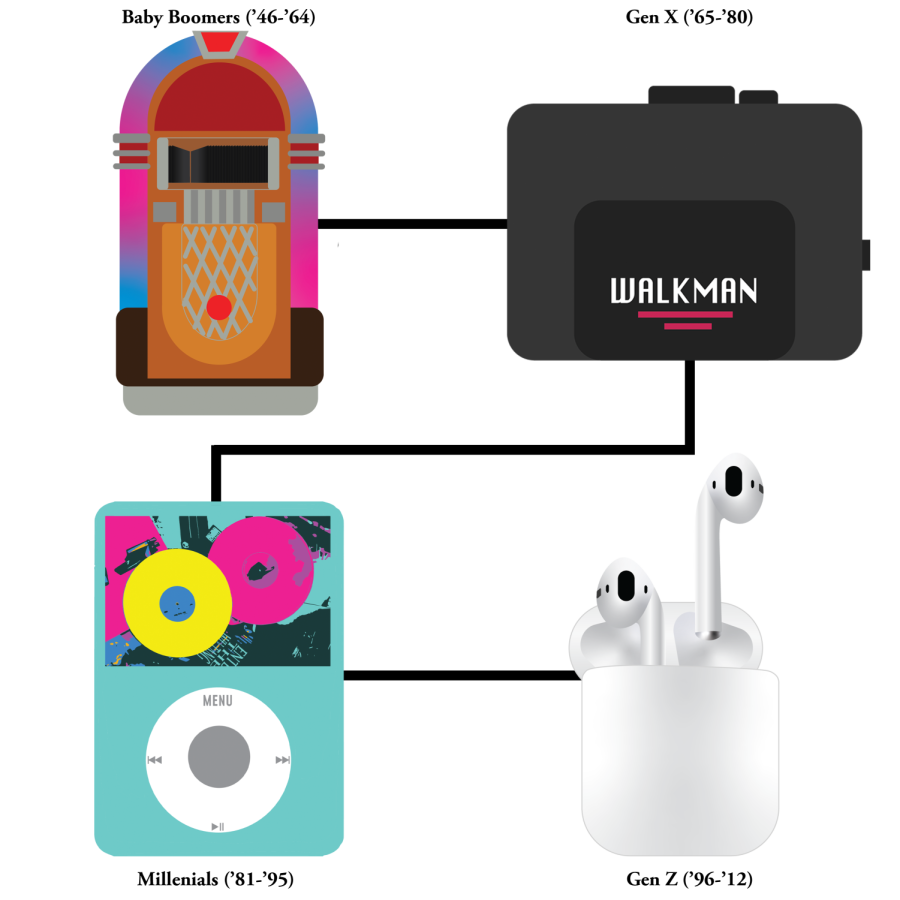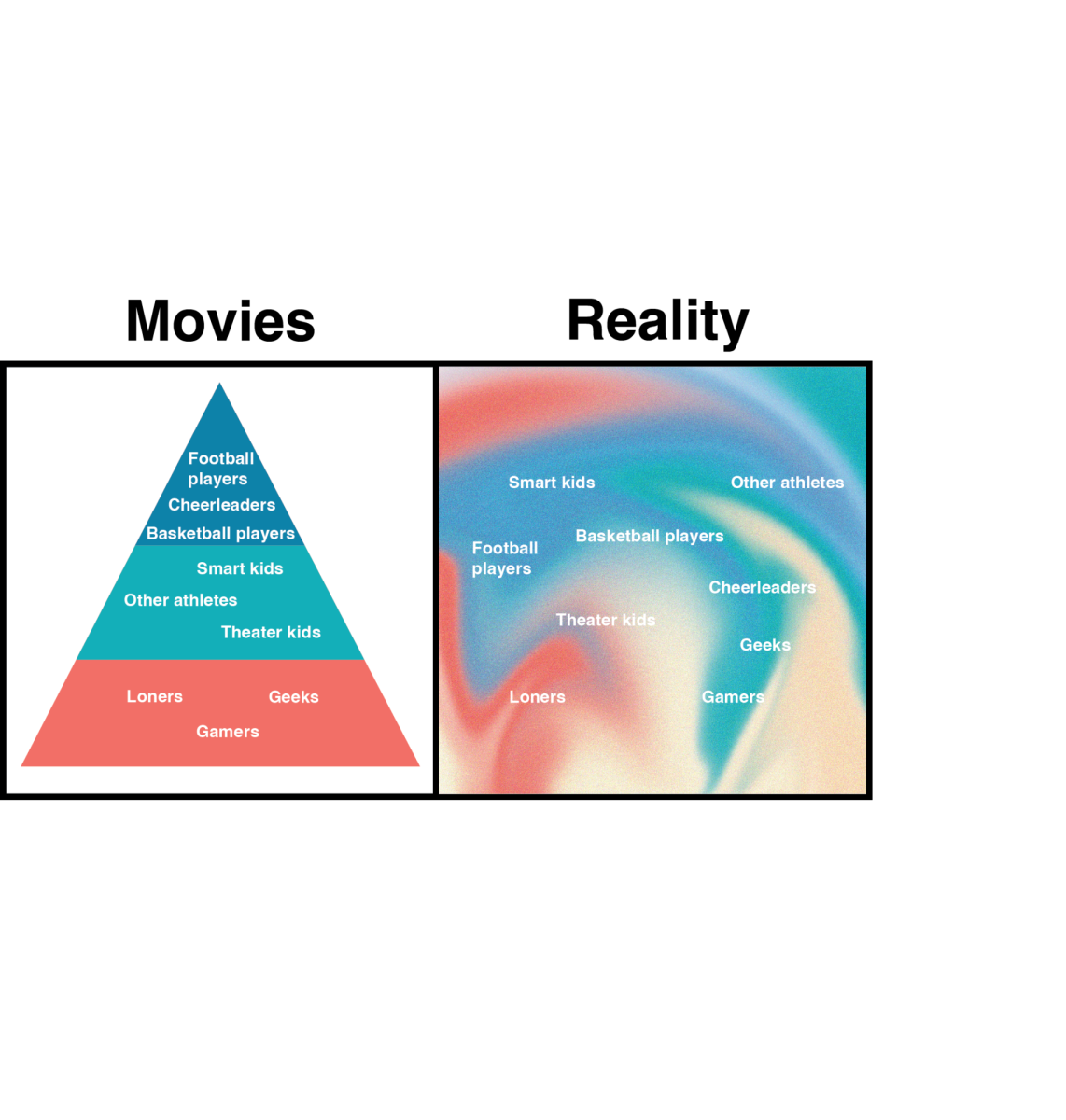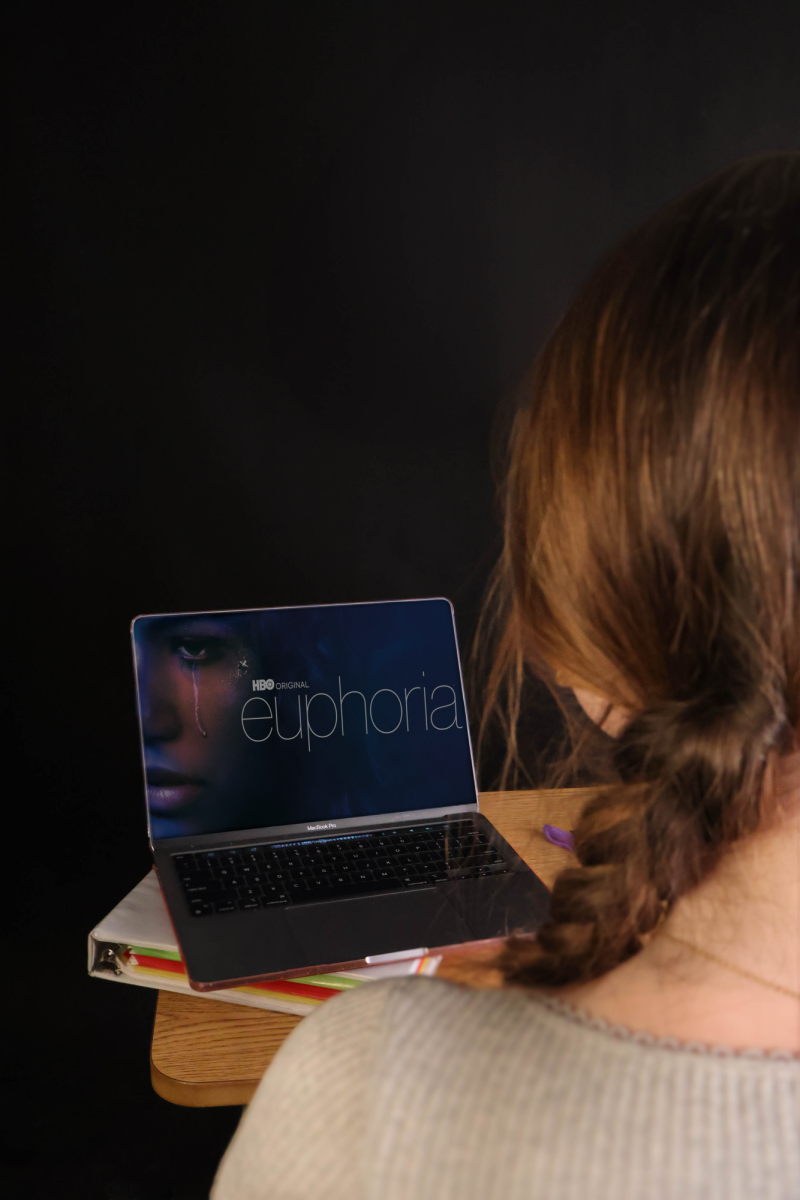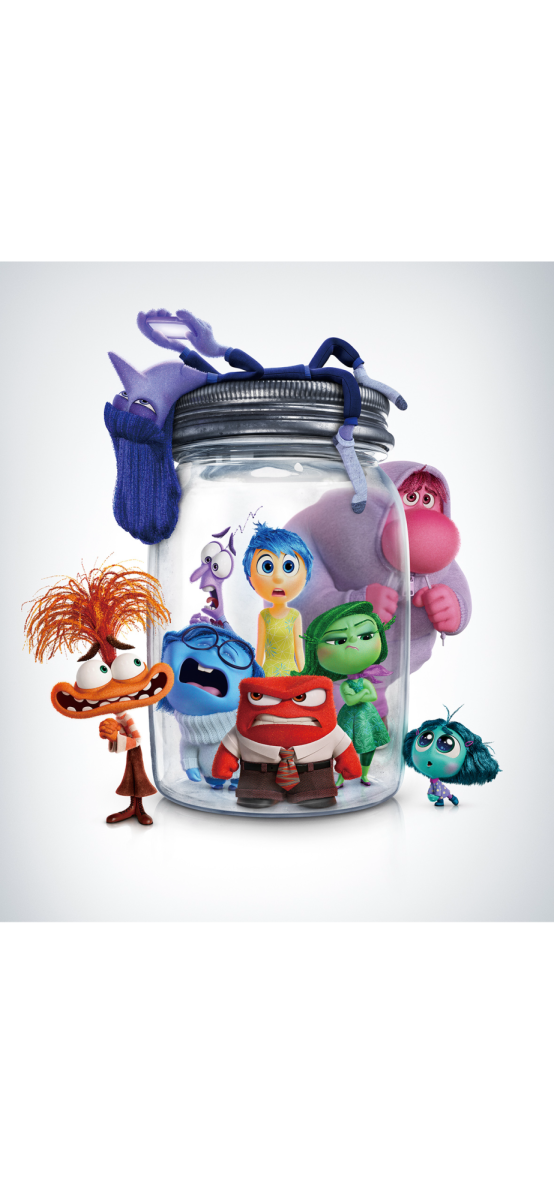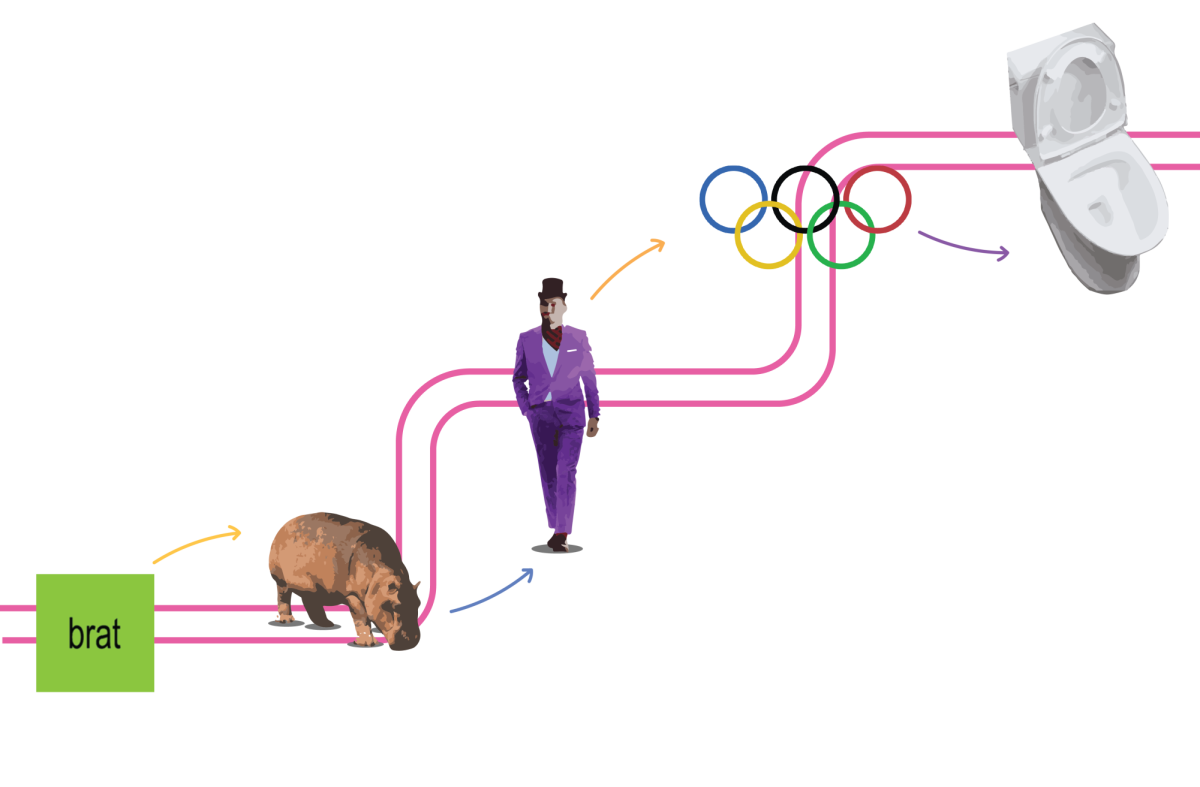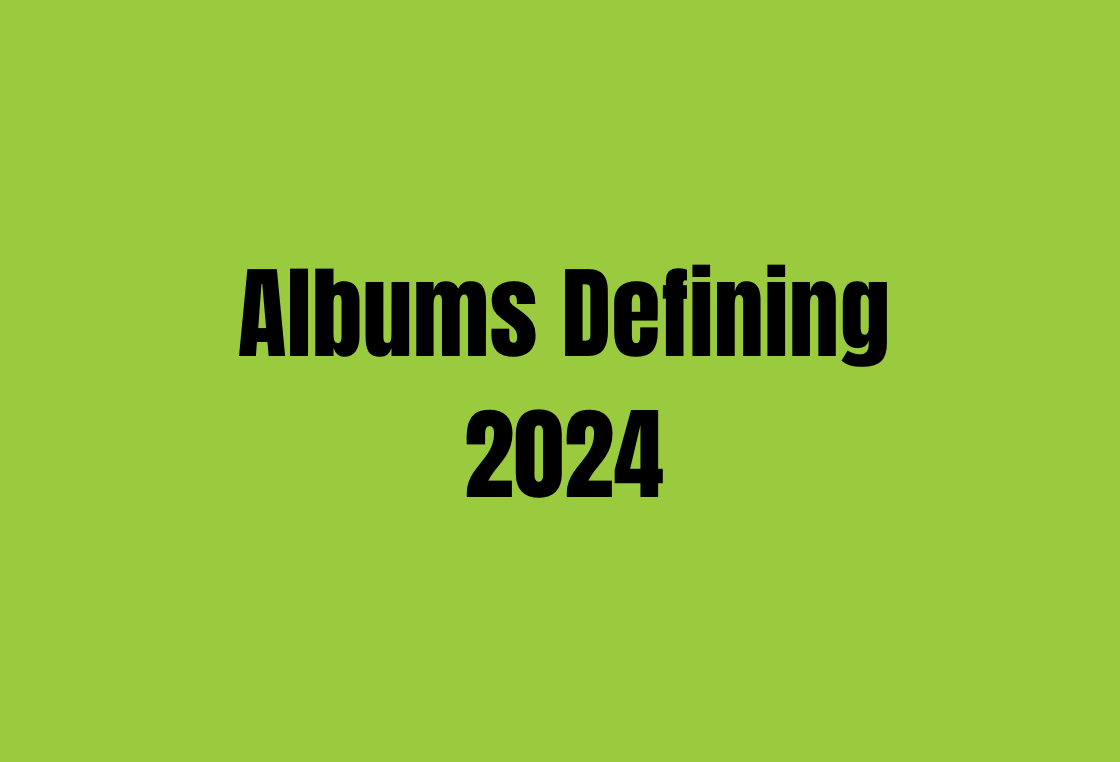Every generation is defined by its music. From classical to jazz, rock and roll to hip-hop, no generation is limited to a single style of music. With each generation’s many genres of music, even the most selective, narrow-minded listeners can find something that speaks to them.
Each era has left a distinct mark on the music industry, a testament to its constant evolution and cycles of change. From the Beatles in the ‘60s to today’s hits and beyond, music continues to provoke emotions and act as an outlet to express how people feel, while its sounds, instruments, trends and genres stay in a state of flux.
Baby Boomers (Born 1946 – 1964):
The Beatles. Elvis Presley. The Beach Boys. The arrival of some of the biggest names in music history came about from a time hailed as the golden age of music. After World War Two, the baby boomer generation emerged, stimulating musical trends like the birth of rock and roll and the evolution of swing jazz.
“[The ‘50s and ‘60s] are the best. The music is upbeat and feel-good, and I think that’s what music needs to be,” math teacher Lynn Wilbur said.
Due to the rock and roll revolution, global interest in the music industry skyrocketed, eventually leading to the first annual Grammy Awards in ‘58. No longer playing in clubs and bars, musicians transformed into full-fledged superstars, performing to sold out stadiums and arenas, including festivals like Woodstock in ‘69.
Gen X (Born 1965 – 1980):
The emergence of rock and roll in the ‘50s and ‘60s set the stage for a musical revolution in the coming generation, with groups like Pink Floyd, Metallica, Queen, and others bringing about the rise of new genres such as new wave, punk rock and hip-hop.
In the ‘80s, hip-hop exploded, with artists like the Beastie Boys and Run DMC bringing their distinct sounds to the masses. This new music pushed the envelope further than any other genre before it, conveying strong messages of social justice and raunchy lyrics.
Along with these new genres, the advent of new technologies such as the Walkman created mass popularity in the music industry, which sold over 400 million units by the time it was discontinued in 2010.
“[My dad] bought us the original Sony Walkman when it came out in ‘79,” history teacher William Milsten said. “And that blew me away, it was a game changer.”
Millennials (Born 1981 – 1995):
Marking the peak of the boy-band era, musicians such as NSYNC and the Backstreet Boys took over the airwaves alongside teen pop superstars including Britney Spears and Christina Aguilera. The influence of hip-hop and rock among other genres from previous generations was still prevalent – only with new faces – as artists like Kanye West and Jay-Z began topping the charts.
As the Internet brought about a rise in music sharing, underground music such as EDM and underground hip-hop soon caught the attention of a wider audience.
“Technology is just making music better,” social science teacher Benjamin Gaddis said. “[It is] more global and more collaborative than it ever was.”
Sites like iTunes, YouTube and Napster allowed for easier access to music, and with the rise of new ways to listen to tunes such as the MP3 player and the iPod, music’s popularity increased.
Gen Z (Born 1996 – 2012):
In today’s day and age, the Internet is a part of nearly everything we do. Due to this rapid digitization, unseen sounds and lyrics have become more prevalent, with artists such as Billie Eilish, Playboi Carti, and Harry Styles entering the mainstream.
Gen Z has unprecedented access to a variety of music platforms and genres, allowing them to easily discover and explore new music. According to a recent school-wide survey, 72% of respondents listen to pop, 54% listen to hip-hop/rap, and 41% listen to rock.
“I think music is the best right now in terms of diversity and range of listening,” 11th grader Eva Chong said.
With this digital revolution underway, social media platforms including TikTok and YouTube began to gain a massive following catering towards younger generations, particularly Generation Alpha (born from 2013 onward).




